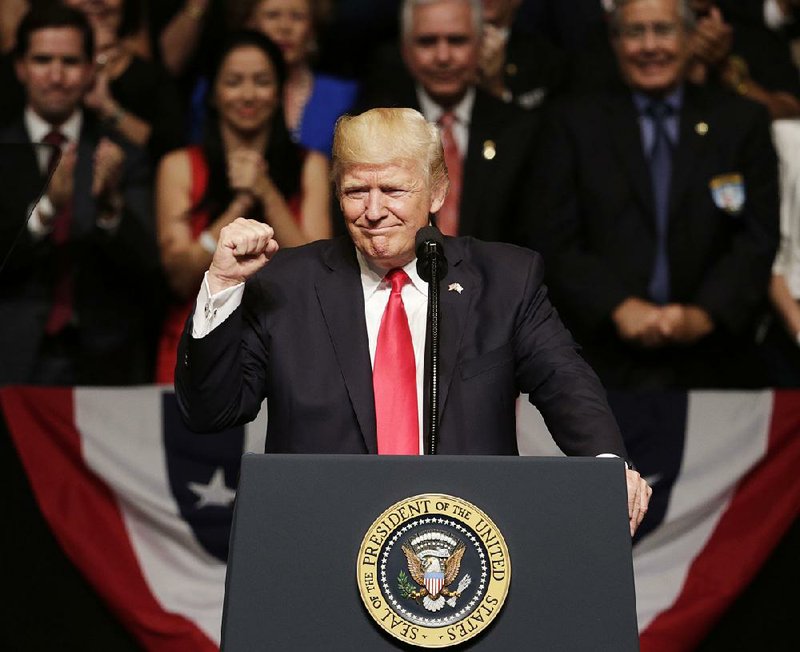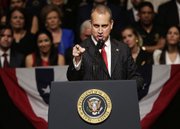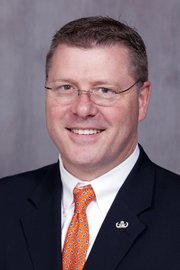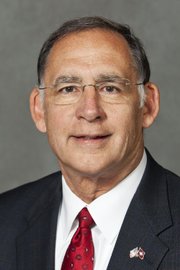MIAMI -- President Donald Trump declared Friday that he was restoring some travel and economic restrictions on Cuba that were lifted as part of President Barack Obama's historic easing.
Trump challenged the communist government of Raul Castro to negotiate a better deal for Cubans and Cuban-Americans.
Members of Arkansas' congressional delegation criticized the decision, saying the move will hurt efforts to open up a new market for the state's farmers.
Announcing the rollback of Obama's diplomatic opening during a speech in Miami, Trump said Cuba had secured far too many concessions from the U.S. in the "misguided" deal but "now those days are over." He said penalties on Cuba would remain in place until its government releases political prisoners, stops abusing dissidents and respects freedom of expression.
[PRESIDENT TRUMP: Timeline, appointments, executive orders + guide to actions in first 100 days]
"America has rejected the Cuban people's oppressors," Trump said in a crowded, sweltering auditorium. "They are rejected officially today -- rejected."
The Cuban government responded Friday evening by rejecting what it called Trump's "hostile rhetoric." Still, Cuba said it is willing to continue "respectful dialogue" with the U.S. on topics of mutual interest.
Though Trump's announcement stops short of a full reversal of the Cuba rapprochement, it targets the travel and economic engagement between the countries that has blossomed in the short time since relations were restored. The goal is to halt the flow of U.S. cash to the country's military and security services in a bid to increase pressure on Cuba's government.
Embassies in Havana and Washington will remain open. U.S. airlines and cruise ships will still be allowed to serve the island 90 miles south of Florida. The "wet foot, dry foot" policy, which once let most Cuban migrants stay if they made it to U.S. soil but was terminated under Obama, will remain terminated. Remittances to Cuba won't be cut off.
But individual "people-to-people" trips by Americans to Cuba, allowed by Obama for the first time in decades, will again be prohibited. And the U.S. government will police other such trips to ensure there's a tour group representative along making sure travelers are pursuing a "full-time schedule of educational exchange activities."
Trump described his move as an effort to ramp up pressure to create a "free Cuba" after more than half a century of communism.
"With God's help a free Cuba is what we will soon achieve," Trump said. "I do believe that end is in the very near future."
Trump cast his action as the fulfillment of a campaign promise.
"Last year, I promised to be a voice against repression ... and a voice for the freedom of the Cuban people," he said. "You heard that pledge ... and here I am."
Trump's move was a direct rebuke to Obama, for whom the diplomatic opening with Cuba was a central accomplishment of his presidency. The new president's action is broadly opposed by U.S. business groups.
"U.S. private sector engagement can be a positive force for the kind of change we all wish to see in Cuba," said Myron Brilliant, the U.S. Chamber of Commerce executive vice president and head of international affairs. "Unfortunately, today's moves actually limit the possibility for positive change on the island and risk ceding growth opportunities to other countries that, frankly, may not share America's interest in a free and democratic Cuba that respects human rights."
Ben Rhodes, the former deputy national security adviser who negotiated Obama's opening with the Cubans, said it was disappointing Trump was halting the momentum that had built but added that it could have been worse.
"This is a limitation on what we did, not a reversal of what we did," Rhodes said in an interview.
Granma, the official organ of Cuba's Communist Party, described Trump's declarations in real-time blog coverage Friday as "a return to imperialist rhetoric and unilateral demands."
The Cuban government's short statement Friday night labeled Trump a hypocrite for calling on Cuba to improve human rights, saying the U.S. government "is threatening more limits on healthcare that would leave 23 million people without insurance ... and marginalizes immigrants and refugees, particularly those from Islamic countries."
The statement reiterates Cuba's commitment to "the necessary changes that we're making now as part of the updating of our socio-economic model," but says "they will continue being decided in a sovereign way by the Cuban people."
On the stage in Miami, Rep. Mario Diaz-Balart, R-Fla., said the U.S. would no longer have to witness the "embarrassing spectacle" of a U.S. president glad-handing with a dictator.
"President Trump will treat the Castro regime as a malevolent dictatorship that it is," Diaz-Balart said. "Thank you, President Trump, for keeping your commitments. You have not betrayed us -- you kept your promise."
Obama announced in December 2014 that he and Cuban leader Raul Castro were restoring diplomatic ties between their countries, arguing that a new approach was needed because the policy the U.S. had pursued for decades had failed to democratize the island. Less than a year later, the U.S. Embassy in Havana reopened.
The U.S. severed ties with Cuba in 1961 after Fidel Castro's revolution, and spent subsequent decades trying to either overthrow the Cuban government or isolate the island, including by toughening an economic embargo first imposed by President Dwight D. Eisenhower.
The trade embargo remains in place under Trump. Only the U.S. Congress can lift it, and lawmakers, especially those of Cuban heritage, like Sen. Marco Rubio, another Florida Republican, have shown no interest in doing so.
Rubio staunchly opposed Obama's re-engagement with Cuba, and he lauded Trump as he took the stage.
"Today, a new president lands in Miami to reach out his hand to the people of Cuba," Rubio said.
Arkansans Weigh In
For Arkansas, Rep. Rick Crawford and Sen. John Boozman, who have been pushing to further ease restrictions with the country, said they opposed Trump's plan to reinstate the restrictions on travel to Cuba and business transactions.
"I strongly oppose President Trump's decision to reinstate a failed, outdated, and isolationist posture towards Cuba," Crawford said in a statement. "This policy change is not just a missed opportunity for rural America, which would greatly benefit from increased access to the island's $2B agricultural imports market."
Boozman said he agreed with Trump pushing for democratic reforms in Cuba but called restoring the restrictions the "wrong approach."
"We ran this play over and over again for fifty years and the results have not changed," he said in a statement.
"By rolling back reforms that have benefited U.S. citizens, everyday Cubans and our economy, we are taking a step backward, not forward," he said. "It would be more effective to continue an open line of communication and working relationship with a government in need of democratic assistance, instead of shutting them out. Through this approach, we not only trade goods, but ideas. The two go hand-in-hand."
Arkansas has had limited trade with Cuba under the embargo. Boozman and Crawford have been advocating to allow agricultural goods to be sold on credit through private financing.
State officials have said Arkansas' rice industry would be the biggest beneficiary of further easing restrictions between the two nations. Gov. Asa Hutchinson in 2015 was the first governor to travel to Cuba since the former Cold War foes reopened embassies in their respective countries. Hutchinson said he was glad Trump planned to keep the U.S. Embassy open in Cuba.
"I would urge the Administration and Congress to focus on constructive policy with Cuba that would benefit Americans, especially Arkansas-based agriculture, by lifting the credit restrictions on agriculture," Hutchinson said. "There is a tremendous opportunity for success in Cuba for Arkansas farmers, and the lifting of credit restrictions on agriculture is a logical first step."
Randy Veach, president of Arkansas Farm Bureau, who traveled with Hutchinson to Cuba in 2015, called Trump's action "a step in the wrong direction."
"There is no better diplomacy than making food available to another country," he said in a statement. "Having been to Cuba, I understand the great opportunities for Arkansas agriculture to expand our markets there, and also to go a long way toward improving the quality of life for the people of Cuba."
Cuban Military Targeted
Trump's change in policy prohibits any commercial dealings with Cuba's economically powerful military and, according to White House aides, was driven by the president's concerns that the previous policy was enriching the Cuban military and intelligence services that contribute to repression on the island.
The restrictions on dealing with the military could significantly affect U.S. travel, although the military has already begun to reorganize its ownership of some businesses and entities in anticipation of such changes. Americans will also still be allowed to bring back unlimited amounts of Cuban products -- including rum and cigars -- for personal use.
But the ease with which U.S. citizens have been able to travel to Cuba over the past two years could also be affected by a significant change in the Treasury Departments control over their activities. Although the U.S. government does not technically prohibit Cuban travel, Treasury regulations under the embargo prohibit the expenditure of U.S. dollars without a special license. Successive presidents have eased and tightened that prohibition, and Obama significantly loosened it by allowing individuals to "self-declare" the purpose of their travel in one of a dozen allowed categories, including for educational, commercial, or "support for the Cuban people."
While tourist travel remained officially banned, Obama also allowed a broad category of "people-to-people" visits to Cuba. Trump's new directive still allows individual travel in all but that category and reverts to an earlier policy of requiring "people-to-people" visits only in a Treasury-licensed group.
While Americans have long been required to be able to "authenticate" the purpose of any visit to Cuba, and to keep receipts and records for five years, the rules were rarely enforced. The White House officials indicated Trump would call for a tighter enforcement.
Information for this article was contributed by Darlene Superville, Michael Weissenstein, Josh Lederman and Andrew DeMillo of The Associated Press; by Karen DeYoung and John Wagner of The Washington Post; and by Emma Hurt of the Arkansas Democrat-Gazette.
A Section on 06/17/2017



